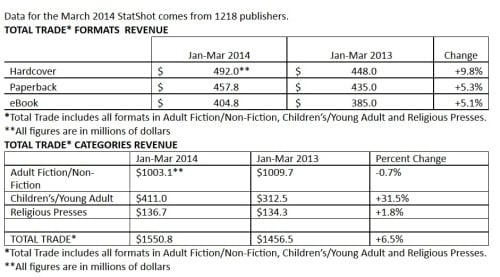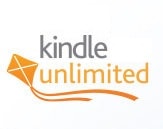The Digital Reader |
- The Morning Coffee – 18 July 2014
- Amazon’s First Fire Phone Advert Features Kids, Doens’t Show Off Nifty Phone
- Conan Doyle Estate Asks Supreme Court to Remove Sherlock Holmes from Public Domain
- AAP Reports eBook, Book Revenues Up in First Quarter 2014
- Oyster, Scribd Comment on Kindle Unlimited
- Tolino eBook Alliance Expands Internationally
- The Morning Coffee – 17 July 2014
| The Morning Coffee – 18 July 2014 Posted: 17 Jul 2014 09:03 PM PDT Your reading list this Friday morning includes an early history of Voyager’s Expanded Books, a debate over whether e-reading threatens learning in the humanities, onion-infused paper, how Amazon isn’t the one killing publishing, and more.
The post The Morning Coffee – 18 July 2014 appeared first on The Digital Reader. |
| Amazon’s First Fire Phone Advert Features Kids, Doens’t Show Off Nifty Phone Posted: 17 Jul 2014 05:42 PM PDT Amazon released their first tv spot for the Fire Phone today, and I think they may have goofed. Rather than talk up the phone’s hardware or its software features, Amazon instead dressed a couple kids up as hipsters and had them talk about the content. As you may know, the Fire Phone ships with 1 year free Prime. It’s a $600 phone, and the best thing they can find to talk about is the free Prime? “I’ve been on this Earth nine years, and I’ve never seen anything like it.” So you’ve never seen an iPhone, kid? The post Amazon’s First Fire Phone Advert Features Kids, Doens’t Show Off Nifty Phone appeared first on The Digital Reader. |
| Conan Doyle Estate Asks Supreme Court to Remove Sherlock Holmes from Public Domain Posted: 17 Jul 2014 12:29 PM PDT
Lawyers for the Conan Doyle estate are asking the USSC to a temporary stay of the June 2014 ruling by the 7th Circuit Court of Appeals while the lawyers file a formal appeal. The request comes after the 7th Circuit refused to stay its decision on 9 July. Update: The request for the temporary stay has already been rejected. Today’s appeal is the latest (and last, hopefully) stage in an 18 month long legal battle which will decide a critical point in copyright law. Starting in February 2013, California lawyer and Holmes aficionado Leslie S. Klinger has been fighting a legal battle with the Conan Doyle estate over the exact copyright status of Holmes, Watson, and other literary creations of Conan Doyle. According to the estate, the characters and other details created by Conan Doyle are still under copyright, even though many of the stories written by Conan Doyle have fallen into the public domain. Arthur Conan Doyle has been dead for 84 years, but due to extensions to copyright terms, ten of the 56 short stories he wrote about Sherlock Holmes are still in copyright. All of the short stories and the four novels were published between 1887 and 1927, and all of the works except the ten short stories have entered into the public domain in the US as copyrights expired. These works also entered the public domain in much of the world in the year 2001, 70 years after the author’s death. On the basis of the 10 stories, the Conan Doyle estate has been collecting fees from any American publisher or media company which used the characters created by Conan Doyle.
Klinger had declined to pay the license fee demanded by the estate, even though he (or rather, his publisher) had paid license fees for his previous Holmes works, including The New Annotated Sherlock Holmes, The Sherlock Holmes Reference Library and The Grand Game: A Celebration of Sherlockian Scholarship. Klinger’s lawyer’s won the lawsuit in December 2013, and then they won the appeal before the 7th Circuit in June 2014. The appeals court concurred with the district court, ruling that elements of stories in the public domain can be used by anyone because the stories are in the public domain. Naturally the Conan Doyle estate doesn’t appreciate that the ruling has taken away its cash cow, and they are now appealing to the US Supreme Court. The Conan Doyle estate is asking for a temporary stay of the appeal court ruling while they file an appeal before the US Supreme Court. Lawyers for the estate are asking for the temporary stay because Klinger has not submitted his new ontology to the estate, so they have no way to determine if it uses any elements from the 10 stories under copyright. (The fact that this issue could be resolved after the fact like any other copyright infringement case seems to have escaped the Conan Doyle estate.) The estate's application was filed with Justice Elena Kagan, who is responsible for handling requests for temporary legal orders from cases from the 7th circuit. The Klinger case against the state began in federal district court in Illinois. Justice Kagan has the authority to grant or deny the stay request on her own, and she can also choose to share it with her colleagues or for a response from Klinger before making a decision. It’s difficult to say what Kagan will decide, but it’s worth noting that she was part of the majority opinion in the 2012 Kirtsaeng decision. That case affirmed the concept of the First Sale doctrine, limiting the control a copyright holder has over a work once it has been sold. The post Conan Doyle Estate Asks Supreme Court to Remove Sherlock Holmes from Public Domain appeared first on The Digital Reader. |
| AAP Reports eBook, Book Revenues Up in First Quarter 2014 Posted: 17 Jul 2014 09:54 AM PDT
The publicly available details were thin in this latest report, which draws from the reported net revenues of 1,218 publishers. According to the AAP, trade publishing sector revenues grew by 6.5% in the first quarter over the same period past year. Downloaded audiobook sales grew by 24.8%, continuing their steady rise, while ebooks increased by 5.1% (from $385 million to $404.8 million). Turning to categories (as opposed to formats) the adult segment saw a 1% decline (from $1.01 bllion to $1.0 billion), while religious presses grew by 1.8% (from $134.3 million to $136.7 million). Children’s and YA books saw the best performance of the categories tracked by the AAP, increasing an impressive 31% (to $411 million from $312.5 million). The latest revenue stats represent a marked turnaround from last year, when the overall book market was down 5%. I have fewer details this time around, but last year at this time the children’s and YA segment was down 31% in terms of both print and digital – largely as a result of the 2012 sales bubble caused by the release of the Hunger Games movie. In 2014 we are seeing a bump in the children’s and YA segment similar to what was reported in 2012. This too is very likely due to the release of the latest Hunger Games movie, which came out in late November 2013, and that detail is worth keeping in mind when that segment craters in the first quarter of 2015. The chart below sums up the statistics shared by the AAP today.
The post AAP Reports eBook, Book Revenues Up in First Quarter 2014 appeared first on The Digital Reader. |
| Oyster, Scribd Comment on Kindle Unlimited Posted: 17 Jul 2014 06:55 AM PDT
The comments are pro forma, but they still say more than the loud silence coming out of Seattle. Trip Adler, CEO of Scribd believes the entrant of a new competitor will be good for ebook subscription services as a whole:
Oyster CEO Eric Stromberg agrees:
Based on the leaked details, Kindle Unlimited is expected to cost $9.99 a month and offer a 600,000 title strong catalog when it launches. No one when exactly that will happen, but I am expecting that the service will go live in August or September. Here’s Amazon’s promotional video for Kindle Unlimited: When the service launches it is going to cause an upheaval in this nascent market. While some companies like 24Symbols have been providing a subscription ebook service for years (Safari Books Online has been around for over a decade) the market really only took off last Fall with the launch of Oyster and Scribd. They had the market to themselves for nearly a year, but soon these two established players are going to find themselves in the same position as Amazon’s other ebook competitors: fighting it out for second place. Of the two, I would say Scribd is better positioned to play second fiddle to Amazon. With 400,000 titles in their catalog, Scribd has a smaller selection but they also are available internationally. Oyster, on the other hand, is still only available in the US, so even though it offers a catalog with 500,000 titles it is still at a distinct disadvantage. Also, Scribd got into this market after building a business in online storage. That gave them a head start in developing the tech and the engineering skill needed to compete in this market on an equal footing with Amazon. Oyster, on the other hand, launched with only an iPad app and belatedly added an iPhone app and (much later) an Android app. But to be honest, it is really too early to say who will come in second to Kindle Unlimited; there’s still time for Oyster to take its service international and work to catch up to Scribd. The post Oyster, Scribd Comment on Kindle Unlimited appeared first on The Digital Reader. |
| Tolino eBook Alliance Expands Internationally Posted: 17 Jul 2014 05:18 AM PDT
Today Tolino took on an international flavor. The Belgian retailer Standaard Boekhandel is joining the Tolino consortium, and it just launched a new ebookstore on its website. Standaard Boekhandel now offers a catalog of over half a million titles, including 22,000 local titles and around 370,000 titles in English. The ebooks can be read in the Tolino apps for Android, iPad, and iPhone, as well as the Tolino Shine ebook reader. The retailer is selling the Shine on its website and plans to also stock it in store. Standaard Boekhandel has 145 stores across Flanders and carries books, newspapers, magazines, and gift packaging, as well as CDs and DVDs. The 99 euro Tolino Shine launched last spring so it’s getting a little long in the tooth, and I really would have expected Standaard Boekhandel to instead carry the newer Tolino ereader, the Vision. The later model has the newer Carta E-ink screen, a thinner design, and generally looks prettier. Today’s announcement is great news for Tolino; it’s the first sign of the consortium expanding beyond the original members, not all of which are in good health financially. Tolino has had some trouble recruiting new members, with a deal to bring in independent German booksellers falling through last fall after MVB decided that the financial terms were too onerous. The indie booksellers would each have had to invest a million euros into Tolino (source), an amount which in the US would be enough to stock a good sized bookstore. And with the German book market growing at a good rate, that was perhaps unfortunate for the booksellers. The latest estimates show that ebooks reached 3.9% of the German book market in 2013, up from 2.4% in 2012. The Belgian ebook market, on the other hand, is of unknown size (I could not find statistics). The post Tolino eBook Alliance Expands Internationally appeared first on The Digital Reader. |
| The Morning Coffee – 17 July 2014 Posted: 16 Jul 2014 09:01 PM PDT Your reading list this morning includes an update on the Apple ebook antitrust case, Darwin’s library, problems with KDP, the dearth of mobile browsers, and more.
The post The Morning Coffee – 17 July 2014 appeared first on The Digital Reader. |
| You are subscribed to email updates from The Digital Reader To stop receiving these emails, you may unsubscribe now. | Email delivery powered by Google |
| Google Inc., 20 West Kinzie, Chicago IL USA 60610 | |
![Memoirs_of_Sherlock_Holmes_1894_Burt_-_Illustration_2-206x300[1]](http://the-digital-reader.com/wp-content/uploads/2014/07/Memoirs_of_Sherlock_Holmes_1894_Burt_-_Illustration_2-206x3001-103x150.png)




![Tolino-Shine-300x199[1]](http://the-digital-reader.com/wp-content/uploads/2013/10/Tolino-Shine-300x1991.jpg)
No comments:
Post a Comment